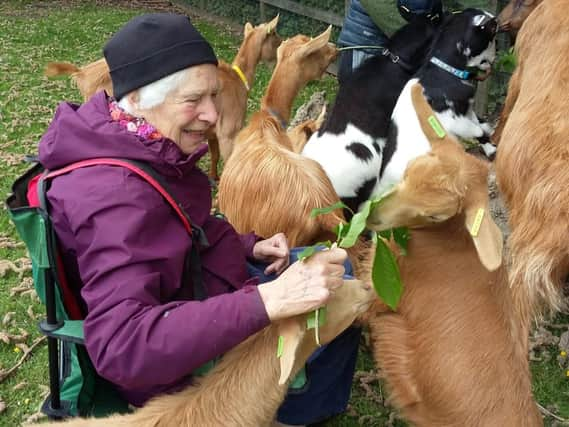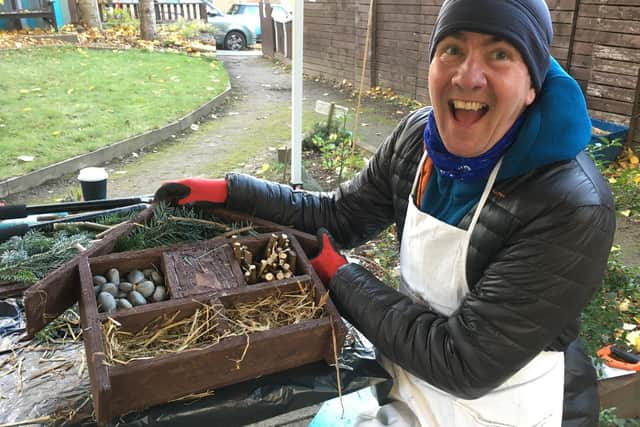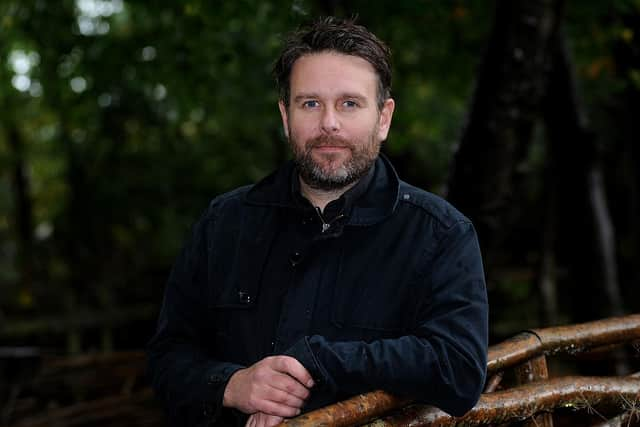How farming therapy and horticulture is helping dementia sufferers in South Yorkshire


And the opportunity to spend time with livestock is now being used to help tackle one of the biggest health challenges of the modern era.
An initiative in Sheffield, called Farming Comes to You, is employing a form of animal-assisted therapy where volunteers take things like goats, guinea pigs and ducks into local nursing homes.


Over the past six years, the project has expanded into more than 20 care homes across the city benefitting more than 600 dementia sufferers.
The project has been developed by Lee Pearse, 47, and his younger brother Andrew, 34, after they lost their mother, Valerie, to a rare form of dementia.
She was aged just 55 when she started showing symptoms of what was later diagnosed as Frontotemporal dementia, which affects parts of the brain which deal with behaviour, problem-solving and the control of emotions, as well as speech.
She passed away in 2015 at the age of 67, and the traumatic experiences of caring for their mother led the brothers, whose father, Rod, died in a road accident in 2010, to embark on the initiative to help other dementia sufferers.


Lee Pearse said: “There has massively been an increase in demand for animal therapy.
“In regards to agitation, wandering and pacing and those types of very upsetting symptoms to experience, including those with dementia, animals have a huge impact.
“The animals act as a vehicle for a different type of communication with an individual - whether that is the family, loved ones, or carers.
“It can get quite hard to communicate with someone with dementia especially in the later stages and sometimes something different that isn’t the norm can open up a door of immense therapeutic qualities for everybody involved.”
Dementia patients are also able to visit the animals directly at Heeley City Farm after a risk assessment, and there are also gardening and musical activities available.
Lucy Dean, 21, a third year-medical student from the University of Sheffield who has recently helped on the initiative, recalled the “astonishing” benefits which the project brought to a dementia patient.
She said: “I remember her being a bit withdrawn and quiet, but the minute she sat down and a guinea pig was placed on her lap and the goats were let out to roam around her, she just came to life.
“She started chatting to me freely about her life and singing to me all these songs that she knew from her childhood, and it really just showed how calming the effect of animals can be
on people.
“No drug could have helped her feel that happy with herself.”
Lee Pearse, who is a national champion for Alzheimer’s Research UK, acknowledged that while society has come “a long way” in supporting and understanding dementia, he said there is an “urgent need” to expand the initiative across Yorkshire to cope with demand.
He said: “Medication should always run alongside green prescribing and the environment and community.
“Health in care farms is fundamental to the support of anyone with a neurological condition.
“Running alongside our health service can only be a superb way to help… It is from absolute lived experience for over a decade.
“From taking my mum to the farm, and now supporting others, something wonderful just happens and you can see it in relative faces - we don’t even have to say a word.”
__________
Support The Yorkshire Post and become a subscriber today.
Your subscription will help us to continue to bring quality news to the people of Yorkshire. In return, you'll see fewer ads on site, get free access to our app and receive exclusive members-only offers. Click here to subscribe.
